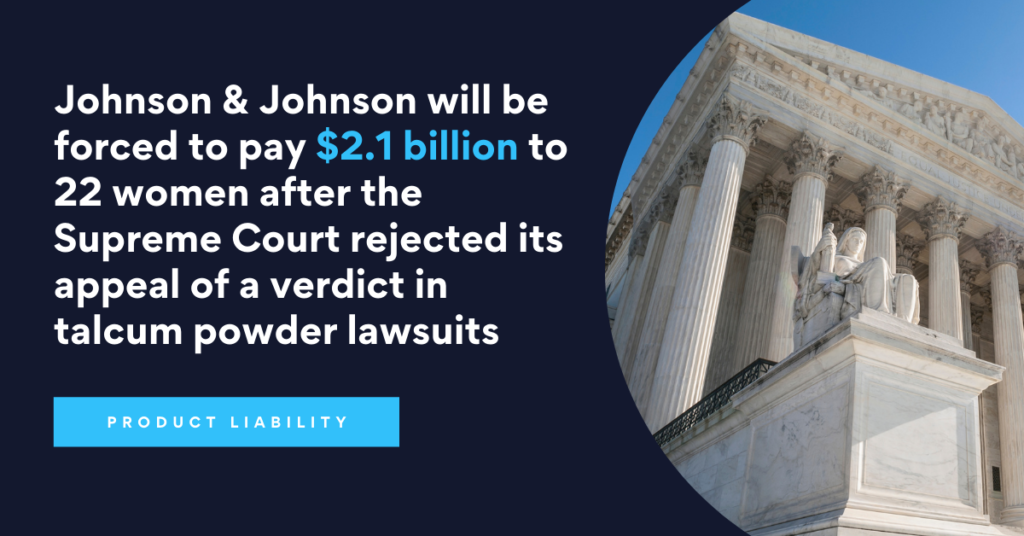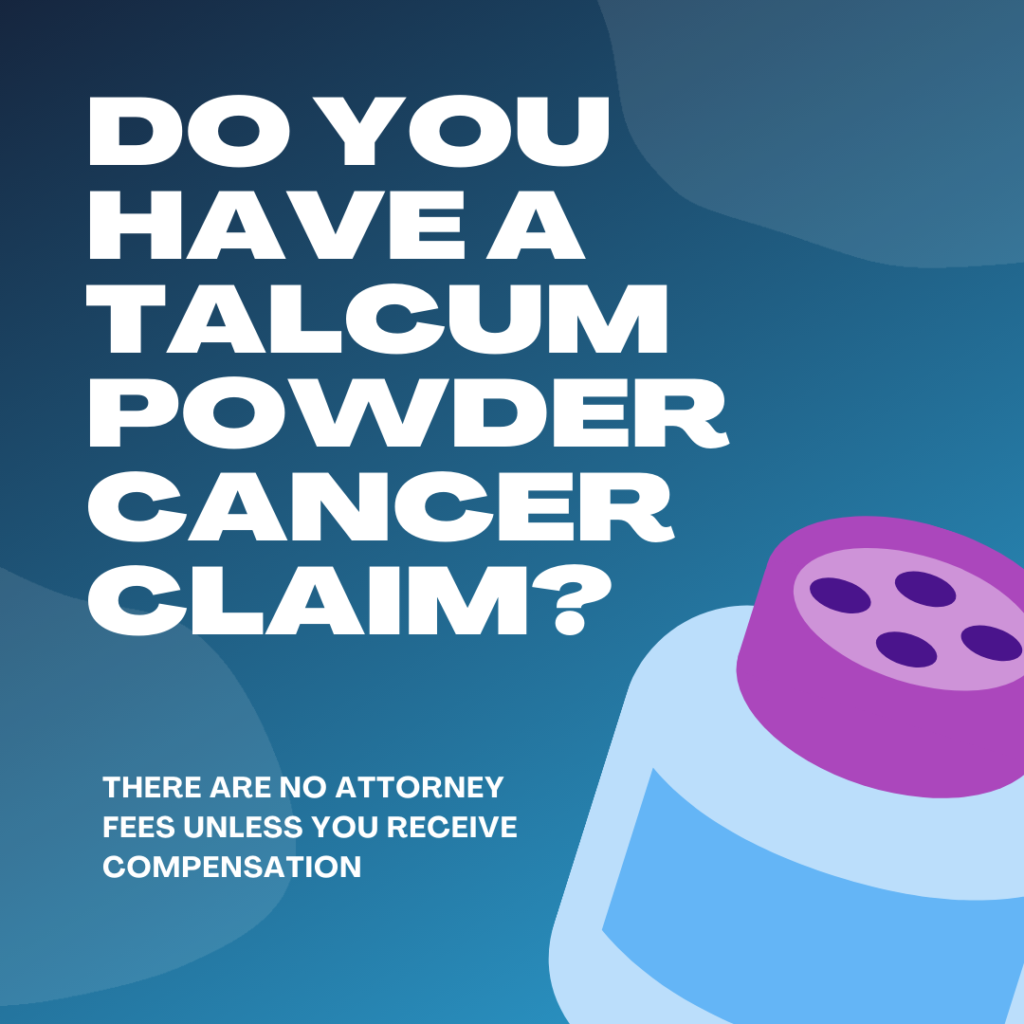The Supreme Court has declined to take up Johnson & Johnson’s appeal of a $2 billion verdict in talcum powder lawsuits. Johnson & Johnson had argued that it did not receive a fair trial. As is typical in rejecting appeals, the Supreme Court offered no explanation for its decision.
 Two justices — Samuel Alito, who owns Johnson & Johnson stock, and Brett Kavanagh, whose father worked for an industry lobbying group — recused themselves from the case and did not participate in the decision.
Two justices — Samuel Alito, who owns Johnson & Johnson stock, and Brett Kavanagh, whose father worked for an industry lobbying group — recused themselves from the case and did not participate in the decision.
$2 Billion Verdict Against Johnson & Johnson in Talcum Powder Cancer Cases
In 2018, a Missouri jury awarded $4.6 billion in compensatory and punitive damages to 22 women who claimed that asbestos in Johnson & Johnson talcum powder caused their cancer. The judgment was later reduced to roughly $2.1 billion by a state appeals court. Johnson & Johnson has strongly denied the allegations, however, and quickly appealed the verdict, arguing that the trial unfairly combined the claims of plaintiffs whose injuries varied widely in severity. The Supreme Court rejected that argument, and Johnson & Johnson will now be forced to pay the $2.1 billion. In a statement, Johnson & Johnson said that it continues to deny any wrongdoing, and noted that the Supreme Court's decision to reject the appeal "expresses no view on the merits." "The decision by the court to not review the case leaves unresolved significant legal questions that state and federal courts will continue to face," said a spokesperson for the company.Talcum Powder Cancer Cases Continue
Johnson & Johnson faces more than 25,000 talcum powder lawsuits alleging that asbestos contamination in the company’s talc-based products causes ovarian cancer, endometrial ovarian cancer, and mesothelioma. In October 2020, Johnson & Johnson announced a settlement of roughly 1,000 talcum powder cancer claims for more than $100,000,000. The company also reported in an investment filing in 2021 that it was setting aside $3.9 billion for other potential talcum powder settlements.Do You Have a Claim?
 Our talcum powder lawsuit attorneys are actively investigating claims that Johnson & Johnson talcum powder causes cancer, and we are ready to help you and your loved ones however we can.
For a FREE, no-obligation consultation with an experienced talcum powder lawyer, please call 1-800-525-7111.
The consultation is free, and we don’t get paid unless you do. If we don’t recover compensation for you in your talcum powder cancer lawsuit, you won’t pay any attorney fees.
Call 1-800-525-7111 and let’s review your claim.
Our talcum powder lawsuit attorneys are actively investigating claims that Johnson & Johnson talcum powder causes cancer, and we are ready to help you and your loved ones however we can.
For a FREE, no-obligation consultation with an experienced talcum powder lawyer, please call 1-800-525-7111.
The consultation is free, and we don’t get paid unless you do. If we don’t recover compensation for you in your talcum powder cancer lawsuit, you won’t pay any attorney fees.
Call 1-800-525-7111 and let’s review your claim.
“Do I Qualify for a Talcum Powder Cancer Claim?”
You may qualify for a talcum powder cancer lawsuit if you meet the following criteria:- Must have used Johnson & Johnson Baby Powder or Shower-to-Shower talcum powder for 4+ years continuously in the general area
- Must be diagnosed with ovarian cancer, mesothelioma, or endometrioid ovarian cancer
- Must have been diagnosed in 2009 or later
- Must have used talcum powder before menopause
*** Disclaimer: The results mentioned are intended to illustrate the type of cases handled by the firm. These results do not guarantee a similar outcome, and they should not be construed to constitute a promise or guarantee of a particular result in any particular case. Every case is different, and the outcome of any case depends upon a variety of factors unique to that case.